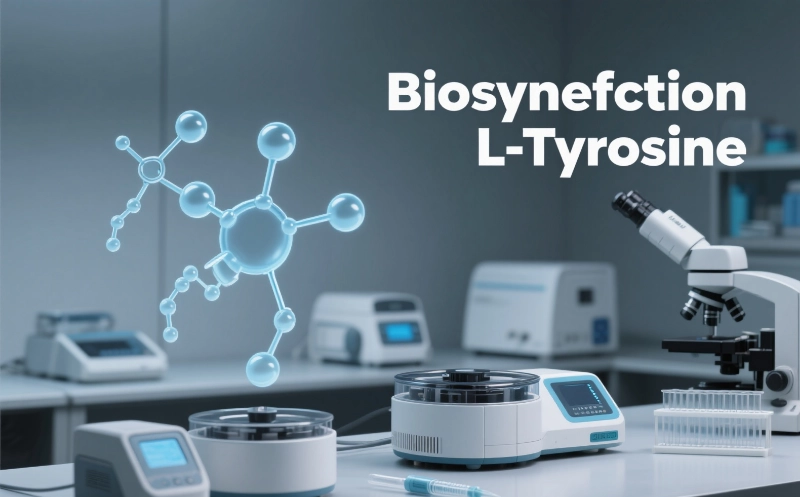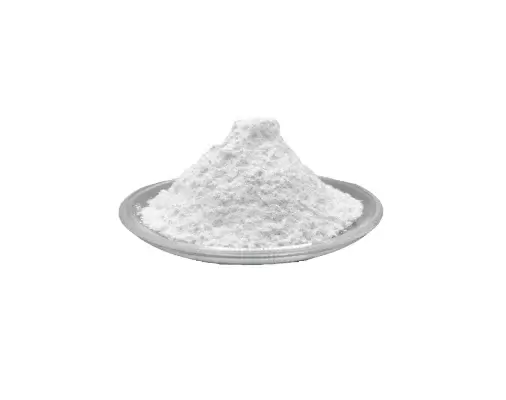L-tyrosine, also known by synonyms such as 4-hydroxyphenylalanine or 4-hydroxyphenylpropanoic acid, is a nonessential amino acid with critical physiological and industrial significance. Produced through advanced biosynthetic techniques, L-tyrosine powder has gained importance in nutrition, pharmaceuticals, and biochemical research. Its properties - white crystalline form, insolubility in common organic solvents, and solubility in diluted acids - make it both distinctive and highly applicable in specialized formulations. In this blog post, Viablife, a high purity natural cosmetic ingredients exporter, will share the properties of biosynthetic L-tyrosine powder for sale, its applications, etc.
L-Tyrosine Powder in Modern Biotechnology
The concept of amino acid biosynthesis is not new, but its application at an industrial scale has become a defining trend. Unlike chemical synthesis or animal-derived sources, fermentation-based L-tyrosine powder leverages microbial platforms engineered for efficiency. This approach reduces environmental burdens, eliminates the need for animal inputs, and ensures a non-GMO, non-animal origin pathway.
The biosynthetic route enhances the scalability of L-tyrosine, allowing researchers and manufacturers to obtain high-purity powder suited for pharmaceutical precursors, dietary supplements, and advanced metabolic studies.
Core Properties of L-Tyrosine Powder Produced via Biosynthesis
L-tyrosine' s unique molecular characteristics underpin its broad applications. As CAS No.: 60-18-4 indicates, this compound' s structure enables it to serve as a precursor for critical neurotransmitters such as dopamine, adrenaline, and norepinephrine.
When prepared as biosynthesis-derived crystalline powder, the product offers:
* Stability: Maintains quality under controlled conditions.
* Versatility: Compatible with dilute acids for solution preparation.
* Precision: High purity levels critical for medical and nutritional formulations.
These properties are what make biosynthesis an ideal production pathway compared with less controlled traditional methods.

Biosynthetic Pathways and Microbial Engineering
The production of biosynthetic L-tyrosine powder often involves microbial hosts like Corynebacterium glutamicum. Genetic engineering enhances metabolic flux toward aromatic amino acid pathways, ensuring elevated yields. The biosynthesis ultimately yields sustainable, high-purity raw materials suitable for laboratory and industrial use.
Applications of Fermentation-Based L-Tyrosine Powder
The shift to biosynthesis expands the versatility of L-tyrosine in various sectors:
* Nutritional supplements: Supports mammalian growth and cognitive performance.
* Pharmaceutical precursors: Acts as the starting compound for neurotransmitter production.
* Cosmetic formulations: Enhances skin care products targeting pigmentation and oxidative balance.
* Research studies: Provides reliable material for metabolic and biochemical investigations.
By offering a fermentation-based amino acid source, biosynthesis ensures consistency across applications where purity and reproducibility are critical.
Why Biosynthesis Is the Future of L-Tyrosine Powder
The preference for biosynthesis over traditional extraction methods stems from several factors:
* Non-animal origin: Aligns with vegan and ethical sourcing standards.
* Cost-effectiveness: Fermentation processes scale efficiently with reduced resource demands.
* Environmental responsibility: Lowers carbon footprint compared with petrochemical synthesis.
* High purity assurance: Critical for pharmaceutical-grade use.
These benefits collectively explain why biosynthetic L-tyrosine powder is being adopted globally by supplement manufacturers, pharmaceutical companies, and research laboratories.
Case Study: Viablife' s Fermentation-Derived L-Tyrosine
Viablife, as a supplier of biological raw materials, exemplifies the adoption of biosynthesis in amino acid production. Their L-tyrosine powder highlights several competitive strengths:
* Derived entirely through fermentation-based technology.
* Maintains non-animal origin status, meeting ethical and dietary standards.
* Offers cost efficiency without compromising quality.
* Delivers high purity crystalline powder tailored for diverse industries.
This reflects a broader industry trend toward biosynthetic sourcing, positioning companies like Viablife at the forefront of sustainable innovation.
Biochemical Significance of L-Tyrosine
Beyond industrial use, L-tyrosine plays indispensable biological roles. It is classified as a nonessential amino acid because the body can synthesize it from phenylalanine. However, supplementation with biosynthetic L-tyrosine powder offers targeted benefits:
* Neurotransmitter support: Essential for dopamine, adrenaline, and norepinephrine synthesis.
* Metabolic regulation: Involved in thyroid hormone production through thyroxine precursors.
* Growth promotion: Supports mammalian development and tissue repair.
The dual role of L-tyrosine - as both a fundamental building block and a therapeutic precursor - makes it one of the most valuable amino acids for research and applied sciences.
Synonyms and Chemical Identity for Global Recognition
When engaging with international research communities, recognizing L-tyrosine' s synonyms and identifiers is essential. 4-hydroxyphenylpropanoic acid and 4-hydroxyphenylalanine are commonly used in scientific contexts. The CAS No.: 60-18-4 standardizes its identity across regulatory frameworks.
These identifiers ensure that biosynthetic L-tyrosine powder can be accurately specified in product development, procurement, and compliance documentation.
Conclusion
From its crystalline properties to its neurotransmitter precursor role, L-tyrosine continues to prove essential in science, health, and industry. The adoption of biosynthetic production methods ensures that L-tyrosine powder is manufactured sustainably, ethically, and with uncompromising purity.
Companies like Viablife exemplify how biosynthesis can reshape amino acid supply chains, supporting global demand for reliable, high-quality raw materials. As biotechnology advances, the future of biosynthetic L-tyrosine will be defined by innovation, environmental responsibility, and ever-expanding applications across nutrition, pharmaceuticals, and beyond.





 Leave a Message
Leave a Message